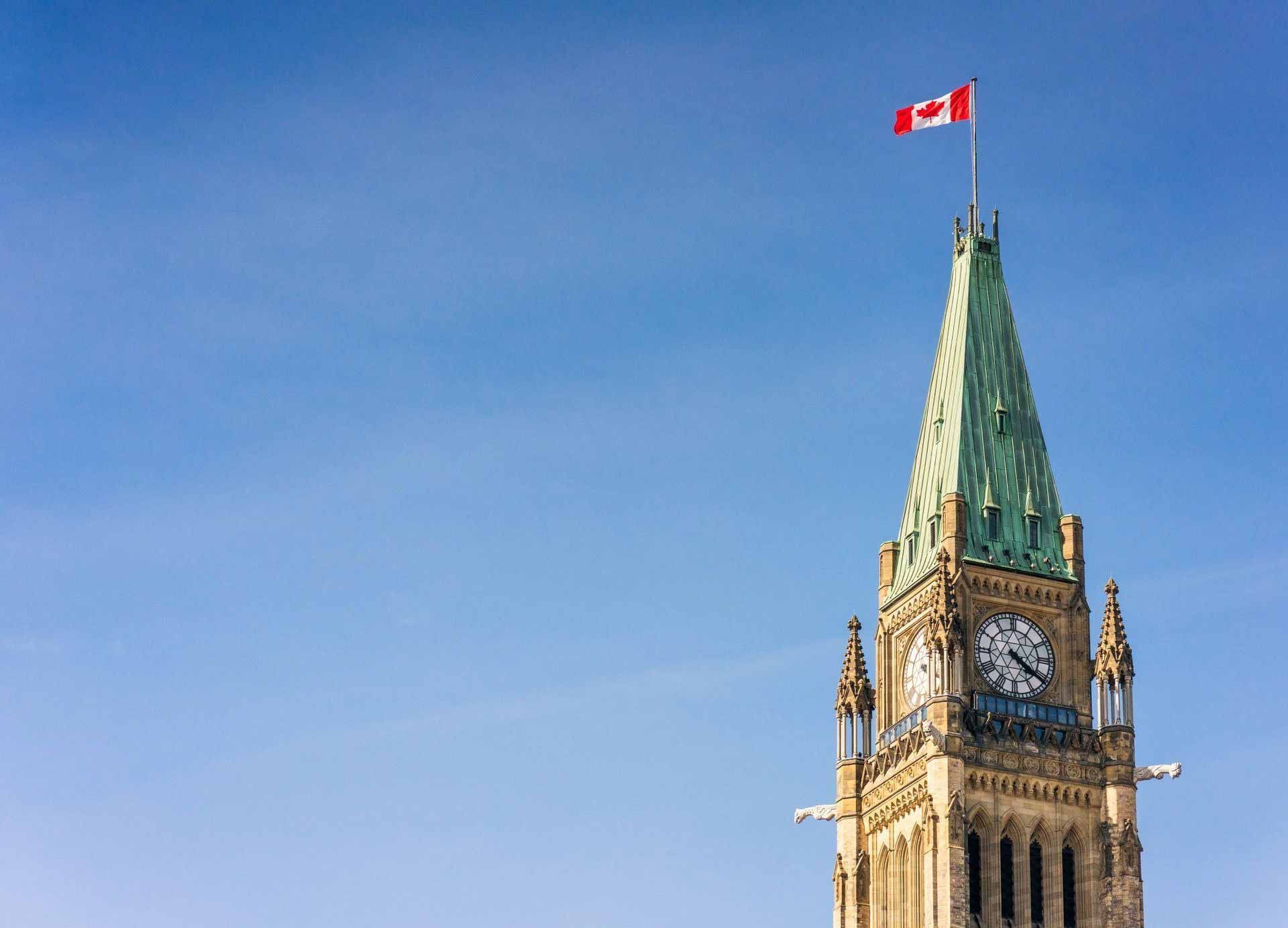Proof of Settlement Funds for Express Entry

Proof of settlement funds will be required for some applicants for permanent residence in Canada, to ensure the applicant has enough money to cover essential living expenses before finding employment. However, not all Express Entry candidates need to show proof of funds - see below for whether you need this.
If you do need to show proof of funds, the amount of money needed will depend on your family size (principal applicant plus spouse or partner and dependent children). The table below shows the minimum amount of funds required to immigrate to Canada as a permanent resident as of May 6, 2024, and is adjusted yearly:
| Number of Family Members | Funds Required (in Canadian dollars) |
|---|---|
| 1 | $14,690 |
| 2 | $18,288 |
| 3 | $22,483 |
| 4 | $27,297 |
| 5 | $30,690 |
| 6 | $34,917 |
| 7 | $38,875 |
| If more than 7 people, for each additional family member | $3,958 |
Who does not need proof of funds for Express Entry?
Applicants who are eligible under the Canadian Experience Class (CEC) do not need to demonstrate proof of funds. If you are applying for permanent residence under this category, and receive the automated field to upload proof of funds, you can upload a note instead, stating that CEC applicants do not need to show funds.
Applicants who qualify under the Federal Skilled Worker Program or Federal Skilled Trades Program and who are not already working in Canada will likely need to provide proof of funds.
An exception is that applicants eligible under these two programs who are already working in Canada will not need to provide proof of funds if both conditions below apply at the time of invitation, the time of application and when IRCC approves the application:
- you are working legally in Canada
- you have a valid job offer
Do PNP applicants need proof of funds?
In some cases, PNP applicants will need to show proof of funds, such as when the candidate is applying under a provincial Express Entry stream. These candidates must first have an Express Entry profile in the federal pool - they must qualify to enter the pool, but may not have the CRS points to receive a federal invitation, and are seeking the 600 points for a provincial nomination.
Such a candidate must be eligible under either the Canadian Experience Class, Federal Skilled Worker Class or the Federal Skilled Trades Class. The class that makes you eligible will determine if settlement funds must be shown, and you follow the same rules for Express Entry generally. As above, CEC applicants are exempt, but those eligible under the other two programs will need to provide proof of funds only if they are not working legally in Canada, with a valid job offer, at the relevant times.
How do I prove the funds?
Applicants needing to prove funds are required to obtain an official letter from one or more financial institutions listing all current bank and investment accounts, as well as all outstanding debts like credit cards or loans.
IRCC provides specific instructions regarding the bank letter needed. This letter is considered one of the necessary supporting documents on the application and must:
- be printed on the financial institution’s letterhead
- include the financial institution's contact information (address, telephone number and email)
- contain the applicant’s name, and
- give account numbers pertaining to the applicant with the opening date for each account, the average balance for the past six months and the current balance as of the date of the letter.
Can I submit bank statements as proof of funds?
Applicants often ask us whether they can submit six months worth of bank statements with their Express Entry application to show the required settlement funds, in lieu of obtaining a formal letter from their bank.
This is not a recommended strategy because IRCC has, on occasion, returned applications as incomplete when bank statements alone were submitted instead of the requested letter. Federal Court has ruled in favor of IRCC when this has occurred. This means that the officer may insist on the bank letter as the only acceptable proof and if they return your application as incomplete, you have no recourse. You can only hope to receive a new invitation and meet the proof of funds requirement next time. Of course, there is no guarantee another invitation will be issued, so it is risky to simply upload bank statements instead of official letters.
We are aware that many applicants have been successful with uploading bank statements instead of official letters. The issue is not whether someone else has done it successfully. The issue is who would be considered correct if an immigration officer decided to reject the application as incomplete. In this scenario, IRCC would be correct, so it is better not to take that chance.
What if my bank will not issue a letter with the information required? or Express Entry?
It’s quite common that a financial institution will not issue a letter that meets the Canadian immigration requirements. In this situation, you need to write a brief explanation that advises IRCC that your bank has declined to provide a letter that contains the details requested. Include whatever letter or statement the bank was willing to provide, and compile as much other evidence as possible to show you meet the settlement funds requirement (including your bank statements).
The fact that you have attempted to comply with IRCC’s requirements and could not, through no fault of your own, provides a more secure foundation to challenge any later rejection for this reason.
Ensure that you have actually requested the letter from the financial institution stating the details needed, and include that correspondence. Never tell IRCC you have made the request when you have not - that would be considered misrepresentation.
Is proof of funds the same as a net worth statement?
No. Although IRCC requests information about your assets and debts, the actual Regulation states:
R76(1)(b) the skilled worker must
(i) have in the form of transferable and available funds, unencumbered by debts or other obligations, an amount equal to one half of the minimum necessary income applicable in respect of the group of persons consisting of the skilled worker and their family members
This requires proof of unencumbered funds, typically defined as: funds that are not pledged as collateral to cover any outstanding debts.
Therefore, the issue is not your net worth, but whether you have enough unencumbered funds to meet the minimum threshold. You can have existing debts like student loans, credit card debts or a mortgage and still meet the requirement for settlement funds
As a practical example, consider that Canada’s Express Entry system gives the most points to applicants who are under the age of 30 with a Master’s or PhD level of education – it would stand to reason that those are the very folks who are most likely to have student loan debt. It makes no sense to both target highly educated young people, and exclude them from the same program.
IRCC officers sometimes confuse this, and some applicants have received procedural fairness letters because they have debt and the IRCC officer took the position that the applicant did not prove the funds necessary for the application. Contact our office if you find yourself in this situation, as it is possible to have your application approved with a fulsome response that explains the requirement to the officer, and demonstrates how you have sufficient unencumbered funds even if you have other debt.
When do I show proof of funds for Express Entry?
The funds must be accessible and available to you at the time you submit the e-APR and at the date you become landed as a Permanent Resident, whether through the online portal or arriving at a port of entry from outside Canada.
Do settlement funds need to be in Canadian currency or a Canadian bank account?
The funds must be liquid and in your name (or the name of your spouse or common-law partner) but do not need to be in Canada.
A word of caution about exchange rates if your funds are not in Canadian dollars. If you are close to the minimum threshold, ensure that you monitor exchange rates in between the time you submit your e-APR and when you are about to become landed. The value of your funds may have decreased with currency fluctuations, and if that happens, the officer may find you no longer meet the requirement. You may want to prove some excess funds from the outset to prevent this happening.
Can I borrow money for the settlement funds?
The liquid funds must belong to the applicant (or their spouse or common-law partner). They cannot be borrowed from someone else with the expectation that they will be repaid at a later date. The funds can, however, be a gift from a parent or other close friend or relative. As long as the funds have been freely gifted to the applicant and there is no expectation that they will be repaid in the future, they are acceptable as settlement funds for Canada Immigration.
Changes to family composition during processing
Changes to your family composition while your application is in process affects the level of settlement funds you will need to prove. A new spouse or common-law partner, or additional dependent child, will increase the settlement funds needed proportionately. [Your application also needs to be amended to include them].
In this case, you can add your spouse or common-law partner’s savings to your own, and also use your joint account to meet the settlement funds requirement.
Can I use real estate, stocks or retirement plans as proof of settlement funds?
The settlement funds must be liquid and available to you at the time you submit your e-APR as well as when you are landed as a permanent resident. Real estate assets, vehicles, fine art or an investment account like stocks and mutual funds do not count as liquid assets until you actually sell them and have the cash in your hands. Whether or not you can use your retirement savings as proof of funds will depend on whether you can actually withdraw the cash upon demand or not.
At The Way Immigration, we are very familiar with proving settlement funds for Canadian Immigration. These policies can be more complicated than they appear, and we find there is a lot of misinformation out there when it comes to proof of funds. Of course, misinformation is dangerous when a single mistake can be fatal to the entire application. Contact our immigration Canada Calgary office today to ensure that you are fully compliant with proving the funds required and all other requirements to make the most of your opportunity to succeed under Express Entry.











